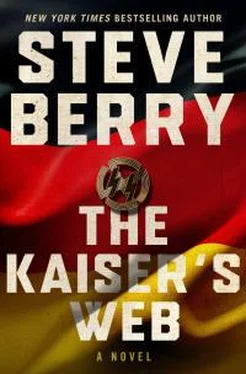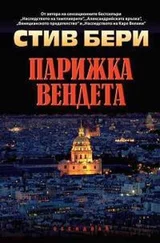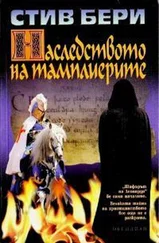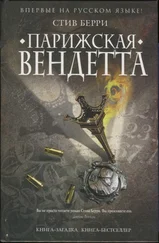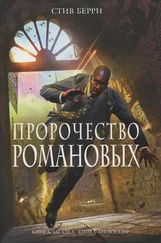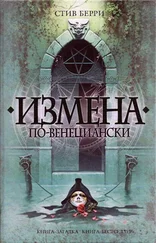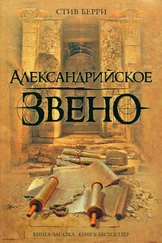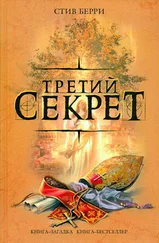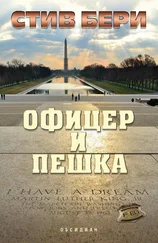Then he stopped.
Standing like everyone else.
Listening.
Doing nothing.
Another man aroused her curiosity. Clearly Middle Eastern, probably Turkish. More light applause erupted. She kept her attention on the Turk. The man’s right hand was in his pant pocket, which seemed odd, his left arm at his side. She did not like the look in his anxious eyes. She debated alerting the others, but decided to wait a moment longer.
“I have a target,” a male voice said in her left ear. “Woman. Agitated. Making comments.”
“Where?” she whispered.
“North transept, forward, near the altar.”
She turned and focused, first spotting her agent, then the woman. She was mid-thirties. Dark hair. Rough face. Who appeared angry.
The woman started to scream. “You will be our ruin.”
The outburst was directed at Eisenhuth, who turned her attention toward the heckler.
“You are plunging us into anarchy.”
Two security men quickly blocked the woman’s path. They seemed to have the situation in hand so she turned back and saw that the Turk was gone. Her gaze raked the crowd, but found nothing. The woman at the front was still yelling. Two agents pinned her arms and began to drag her from the cathedral. Cassiopeia spotted the Turk, emerging from a crowd near the altar.
She pushed forward.
“A man. To the right of the altar. Turkish. I don’t like the look of him,” she said into the microphone.
She hoped someone was closer since she was still fifteen meters away with a throng of people in between. The crowd was lighter in the transepts, which must have been how the Turk was able to move forward so quickly.
Pushing through the last of the onlookers, she emerged at the velvet ropes that blocked access to the altar. The Turk was still to her right, but had stopped his advance. She spotted no other agents near him. She laid her right hand on the butt of her automatic in its side holster. She came to within three meters of the Turk when a woman approached him and intertwined her arm with his. She kissed him on the cheek and there was clear surprise on his face, then recognition and a smile as the two started to chat, clearly glad to see each other. They then turned and walked, arm in arm, back toward the main entrance.
“False alarm,” she said into the mike.
Eisenhuth started speaking again.
Then something new caught her eye. One of the priests. Fair haired. Light skinned. Clean shaven. Edging his way past the others. Slow. Deliberate. His eyes locked on Eisenhuth at the podium. None of the other priests were jockeying for a better position. All the rest were standing still, focused on the speaker. Not this guy. He kept moving closer. Steady. Determined.
Suddenly he shoved people aside, several to the ground, and rushed into the open space between the altar and the pews. He leaped the velvet ropes into a no-man’s-land that would be defended at all costs. It was the one place inside the cathedral that Cassiopeia felt reasonably safe protecting, the crowd to three sides, Eisenhuth to the other.
The priest rushed forward, pulling open his cassock, exposing a bare chest wrapped with packs of plastic explosives, nylon bags of shrapnel on top, ready to explode outward and kill anyone within thirty meters or more. He continued his advance, his right hand rising to a short length of wire dangling from the body pack.
The detonator.
Cassiopeia plunged her hand beneath her coat and found the gun. He was now within ten meters of Eisenhuth, who’d stopped talking and was focused on the approach of her assailant. One of the guards at the altar started toward the man, while the other lunged for the chancellor.
But neither of them would make it, she concluded.
She freed her weapon from its holster and steadied herself to fire. The priest’s hand gripped the detonator wire. She aimed, but realized the bullet would arrive too late. Both she, Eisenhuth, and a good portion of the crowd would be dead before the suicide bomber could be incapacitated.
Then the man’s head erupted, his face transformed into a mass of red jelly. One moment his scalp was intact, the next the skin split like a melon and disintegrated in an eruption of blood, bone, and brains. Momentum caused his body to pitch forward, both hands instinctively reaching out, but his frame simply went limp, then slunk to the floor as a sheet might find the ground in a wind. There was a moment of what she thought was utter silence, then the cathedral’s interior was flooded with a mélange of screams and shouts. She rushed forward and pointed her gun at the lifeless body.
“Get her out of here,” she yelled to the security men, who whisked Eisenhuth from the altar as panic sent the crowd fleeing for the doors at the far end.
She knelt beside the corpse and heaved a sigh of relief. Camera flashes erupted in a blast of nearly blinding light. She stepped to the side and focused her gaze to the back of the church and up fifteen meters. Standing before a stone balustrade, backdropped by the sparkling copper torrents of organ pipes, stood Jan Bruin, rifle in hand.
“Nice shot,” she said into the microphone.
The burly South African tipped the barrel of the gun in her direction, signifying his acknowledgment of the compliment.
“Sadly, though,” Bruin said in her ear, “we will learn nothing from that unfortunate fool.”
CHAPTER SEVENTY
AUSTRIAN ALPS
7:00 P.M.
Cotton listened to the wind and rain. The sun was gone, the valley cast in near-total darkness. He stood outside the farmhouse, under the covered entrance, and studied the woods beyond, probing for what he might have missed. He could remember times in many a locale when he’d sensed something long before anything ever happened. He once tried to identify what in his brain gave rise to that apprehension, but there was no answer. His mind simply was able to assimilate his surroundings and, more often than not, determine that things were not as they appeared.
Like now.
He listened as the storm caressed the valley. The wind hummed and the rain lashed the ground. Not savage or destructive, just a steady drizzle disturbed only by a stiff breeze. Trees bristled and announced their presence in every direction. Only the rectangular slab of amber light cast out from the open front door pierced the blackness. Schüb had told him that he owned most of the valley and that there were no other inhabitants for several kilometers, another reason why Bormann chose the location.
“We need to be going,” he said to Schüb as he stepped back inside.
The old man was switching off lights.
He really should call Cassiopeia and tell her of Schüb’s confession of fatherhood and what else he’d learned in Lugano. But that would have to wait until a face-to-face discussion.
“Have you decided where?” he asked.
“To Hesse. Theodor lives there. I was told yesterday that he is in residence until tomorrow.”
“How do you think he’ll react to learning you’re his father?”
Schüb shook his head. “He worshiped Bormann. So he will deny it, but thankfully there are ways of proving parentage today. There is no doubt in my mind. Evi was certain. I would assume no one cares that I might be his father. But Evi, as his mother, that could still be a problem for him.”
He heard again the intimate name. Evi.
Schüb seemed to like its use.
“I will make right what has, for so long, been wrong.”
He could see that the old German was serious. A lifetime of tough choices had seemingly come down to the next twenty-four hours.
“Do you have a child?” Schüb asked.
“A son.”
“Are you proud of him?”
“More than I can say. He’s quite levelheaded. More so than me at times. I never really knew my own father. He was killed when I was ten. I don’t want my son to go through that.”
Читать дальше
